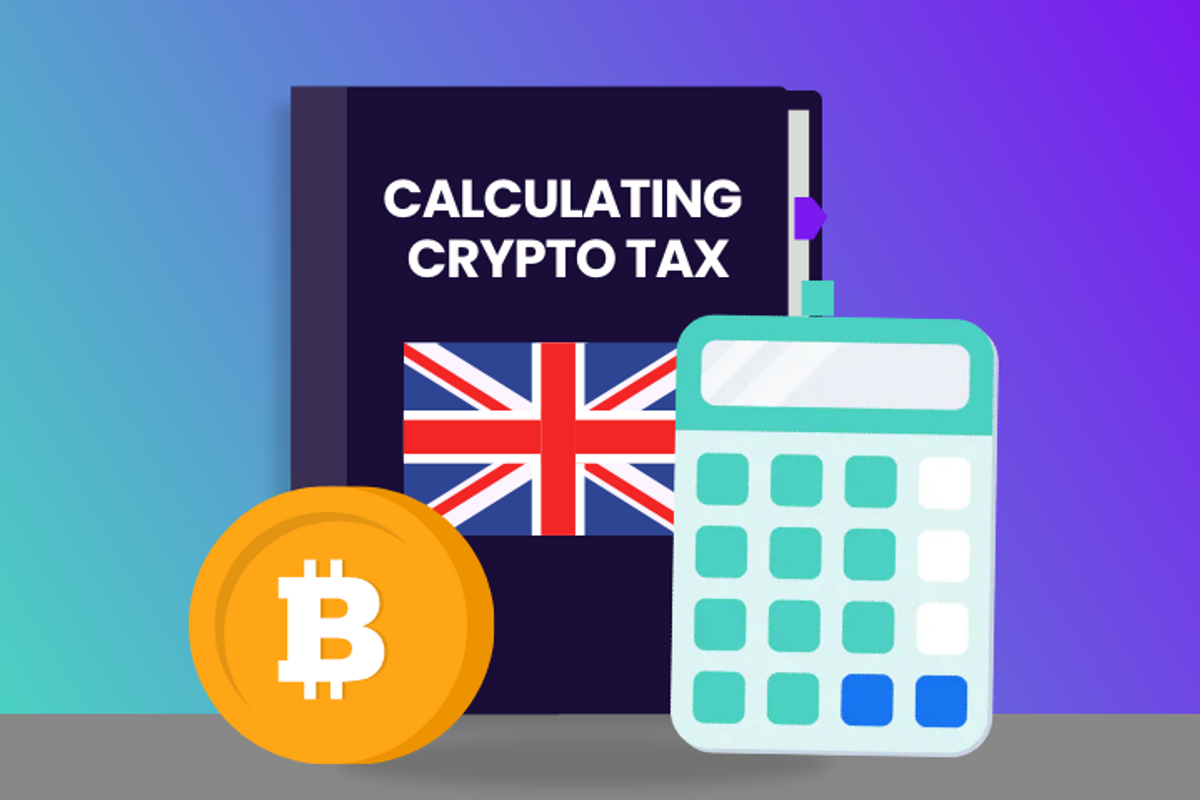
Crypto lending and borrowing have grown in popularity, offering unique opportunities for investors to earn passive income. Whether through centralised platforms or decentralised finance (DeFi) protocols, crypto loans have introduced a new financial frontier. However, with these opportunities come complex tax implications for UK investors.
To learn more about DeFi taxes, check out our detailed DeFi UK tax guide. Or, to start calculating your tax liability, use our crypto tax calculator.
Understanding these tax implications is essential to staying compliant with HMRC regulations. In this article, we’ll explore the intricacies of crypto loans and their taxation, covering everything from lending rewards to the concept of beneficial ownership. Use the jump links on the left to navigate directly to the section that interests you.
Disclaimer
This guide is intended as a generic informative piece. This is not accounting or tax advice that can be relied upon for any UK individual’s specific circumstances. Please speak to a qualified tax advisor about your specific circumstances before acting upon any of the information in this article.
What is a crypto loan? Centralised vs. DeFi lending explained
Crypto loans allow investors to borrow or lend digital assets. Borrowers provide collateral - often in cryptocurrency - while lenders earn rewards, such as interest, for providing liquidity. For example, you could lock up your Bitcoin as collateral to borrow USDT or lend your Ethereum to earn interest on a lending platform.
Differences between centralised and DeFi loans
- Centralised crypto loans: Managed by centralised platforms (e.g., Binance, Nexo), these loans require users to trust the platform for custody and management of their assets.
- DeFi loans: Operated via smart contracts on decentralised platforms (e.g., Aave, Compound), DeFi loans eliminate intermediaries and rely on blockchain technology for execution.
Benefits of lending crypto
- Fast access to funds
- Global participation
- Flexibility in terms
Risks of crypto loans
- Volatility in collateral value
- Platform security issues
- Liquidation risk
We take a more detailed look at the pros and cons of lending in our blog about earning passive income with crypto.
How are crypto loans taxed?
We’ve always assumed that crypto lending rewards are subject to income tax, but HMRCs updated lending and staking guidance in 2022 confirmed that there may also be a capital gains tax liability.
When participating in crypto loans, you need to consider the tax position at the following stages of the process:
- Receiving lending rewards
- Entry and exit of the loan
- Future disposals of the assets.
New HMRC Guidance Decentralised Finance: Lending and Staking
HMRC’s updated guidance, clarifies that the tax rules apply to all lending scenarios, whether through centralised or decentralised platforms.
1. Tax on crypto lending rewards
It’s easy to assume that all lending rewards fall under income tax, but HMRC guidance indicates that you need to consider if the nature of the reward is income or capital. Whilst this is down to your, or your tax professional’s judgement, the below table summarises the main indicators that HMRC note.
| Capital | Income |
|---|---|
| Return realised from the capital growth in value of an asset owned by the lender/liquidity provider | Return paid to the lender/liquidity provider by the borrower/DeFi lending platform |
| At the time of agreement, the return is unknown/ speculative | At the time of agreement, the return is known / agreed |
| Return is paid upon repayment of the principal a one-off payment | Return is paid periodically throughout the period of lending |
| Indefinite or long term loan period | Fixed or short term loan period |
| Return earned by providing a service to the borrower/DeFi lending platform |
Income tax on lending rewards
Income rewards, received in exchange for lending out your tokens will be treated as miscellaneous income subject to income tax. The taxable amount is based on the fair market value of the rewards at the time you receive them.
Capital gains tax on lending rewards
Capital rewards from lending crypto are not treated as income, but subject to capital gains tax.
At the point of loaning out your token:
- A capital gain is realised, based on the present estimated value of the future reward.
- There is an acquisition of a Marren v Ingles right to receive the reward at an acquisition cost of the estimated value of the future reward.
Upon receipt of the capital reward:
- The estimated capital gain of the reward is assessed based on the value of the reward when received.
- There is a disposal of the Marren v Ingles right. Disposals proceeds are the sterling market value of the capital reward tokens received.
There is a capital gain where the estimate upon entry was too low, or a capital loss where it was too high. (It is possible to carry back a loss from a 'Marren v Ingles right' against the capital gain upon entry).
Trading income
If the taxpayer is a ‘financial trader’ in cryptoassets lending rewards may be treated as trading income rather than miscellaneous income.
2. Tax when principal tokens loaned out
You may find that capital gains tax applies when entering and exiting a lending position. The capital gains tax position of the principal tokens locked away/loaned out needs to be considered:
- at the time of loaning out your cryptoassets
- and at the time of receiving the repayment of your cryptoassets
HMRC may consider these events a taxable disposal, subject to CGT if beneficial ownership of the tokens locked away/loaned out have been transferred to another party.
Where there is no transfer of beneficial ownership
There is no disposal for capital gains tax purposes upon entering or exiting the yield generating activity. The reward is subject to tax when received, depending on whether it is income or capital in nature as previously explained.
Where there is a transfer of beneficial ownership
When a transfer of beneficial ownership occurs, there is a disposal for CGT purposes. The tax treatment differs depending on whether the reward is capital or income in nature - please refer to our [technical tax guide] for all possible scenarios.
Beneficial ownership
It will be the responsibility of the taxpayer to decide whether or not beneficial ownership has been transferred, yet this is a complex legal matter with very little in the way of supporting guidance and examples from HMRC. It is recommended that professional, legal and tax advice is sought regarding your specific circumstances.
3. Future disposals of the assets
When you eventually dispose of any lending rewards or the principal tokens, capital gains will apply as normal based on any changes in value between the disposal proceeds and acquisition cost. The sterling market value of the reward at the date of receipt is the CGT acquisition cost. HMRC share matching rules also need to be applied.
Accounting for lending platforms victim to bankruptcy
If you’re a UK taxpayer accounting for losses from the Celsius bankruptcy, check out our dedicated article about Celsius Bankruptcy distributions for detailed guidance.
REPOS
What are REPOS?
A REPOS (Repurchase Agreement) is a type of secured loan widely used in traditional finance, involving shares or securities. The owner of shares or securities sells them to a lender under the condition that they will repurchase the assets at a predetermined price on a future date. This allows the seller to access liquidity while the lender secures temporary ownership of the asset, with the agreed repurchase price providing them with a return.
How do crypto REPOS work?
While REPOS are most commonly associated with traditional assets such as government bonds, the concept is beginning to extend into the world of cryptocurrency. Several platforms now offer REPOS involving cryptoassets, enabling holders to raise short-term liquidity without permanently relinquishing their assets. They function similarly to their traditional counterparts, but key differences are:
- Smart contract automation: Crypto REPOS are typically executed through smart contracts, ensuring the terms of the transaction are enforced without requiring intermediaries.
- Volatility considerations: Unlike traditional assets, cryptoassets can experience significant price volatility, adding complexity to the agreement's terms and potential risks for both parties.
Are crypto REPOS taxed?
HMRC does not classify cryptoassets as securities, meaning they do not benefit from the tax-neutral treatment that traditional REPOS transactions receive. Instead, disposals and reacquisitions in crypto REPOS are considered taxable events for capital gains tax (CGT) purposes.
For example, if you enter into a REPOS agreement using Bitcoin, the initial sale of your Bitcoin to the lender is treated as a disposal for tax purposes. Any gains or losses must be reported. When you repurchase the Bitcoin at the agreed price, HMRC considers this a new acquisition, which resets your base cost for future CGT calculations.
Visit the REPOS section of our technical tax guide for more information.
How to track your crypto loan transactions for tax purposes within Recap
When participating in crypto loans it’s really important to account for all activity for accurate tax reporting. Each transaction - whether lending, borrowing, or receiving rewards needs to be recorded to ensure compliance.
Recap helps by allowing you to collate all transaction history through automated integrations to accounts and wallets or CSV import. You can check the tax application and calculation for every transaction and when you are ready generate and download your tax reports for capital gains, losses, and taxable income.
Sign up for Recap today and simplify your crypto tax journey.



